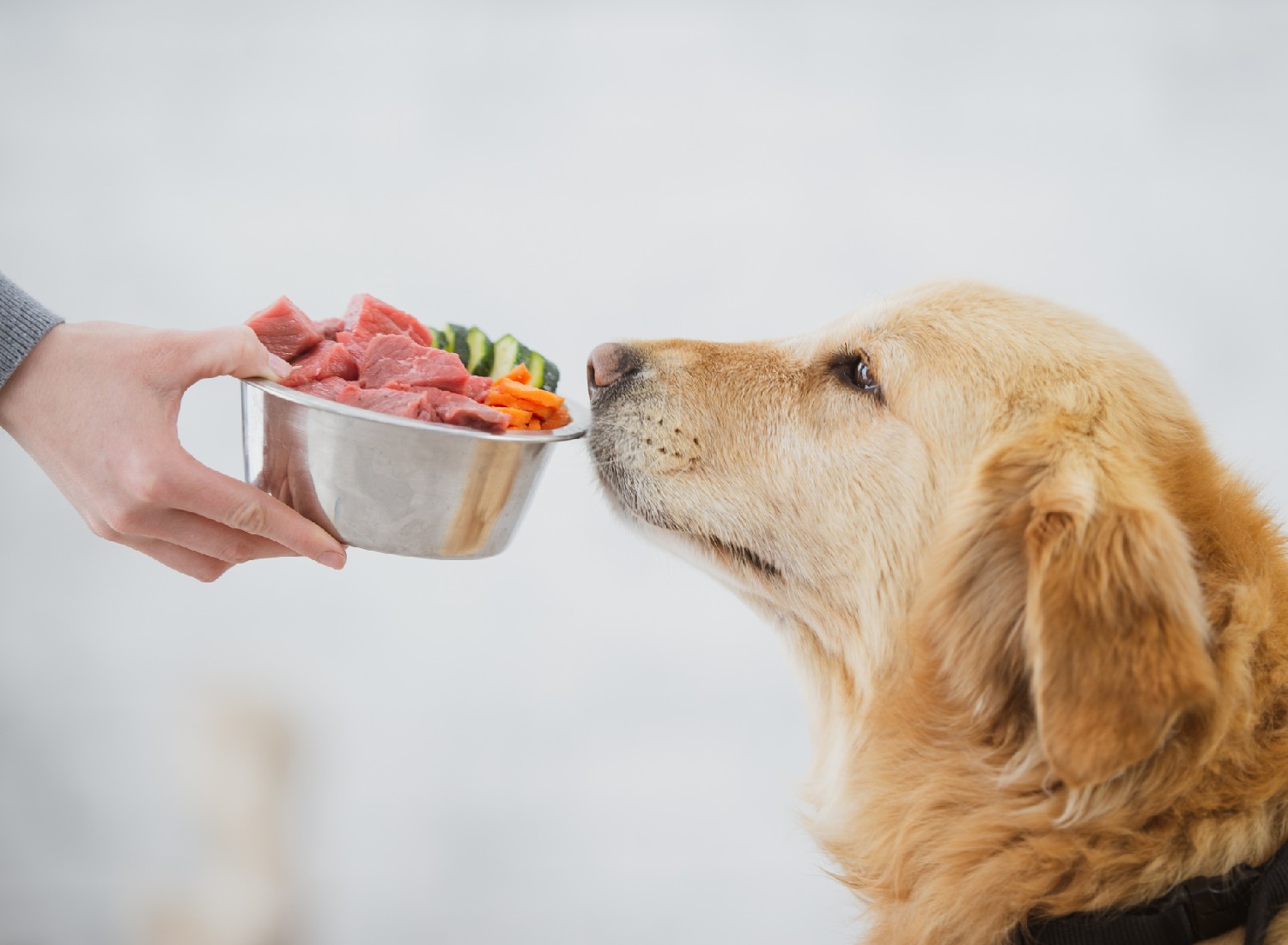Can Dogs Eat Raw Meat?

Trying to figure out the best food for your dog can be an overwhelming task. There are so many options to try including dry food and wet food. Some people even take the time to make homemade food for their pups! But with the increasing popularity of raw food diets for pets, many dog owners are questioning whether it’s better or even safe to feed them a raw meat diet.
In this post, we’ll explore this canine diet and tell you about its benefits and drawbacks, so you can make an informed decision about your dog’s daily nutrition. Let’s get started!
Raw Diet Overview
First, let’s break down what a raw food diet for dogs is. A raw food diet for dogs, also known as a BARF diet (Biologically Appropriate Raw Food), is a diet that includes raw meat, bones, fruits, and vegetables. Usually, with the food placed in an elevated dog bowl together, supporters of this diet believe that it mimics an evolved dog’s natural diet, which is based on the consumption of raw meat and other healthy foods.
Raw Meat Pros and Cons
Now, back to the question, can dogs eat raw meat? The answer is yes, dogs can eat raw meat. Many dogs thrive on raw food diets. Raw meat contains essential nutrients that dogs need to maintain their health, including protein, amino acids, and vitamins.
However, there are some things that dog owners need to consider before feeding their four-legged friends raw meat. First, raw meat can contain harmful bacteria, such as salmonella and e.coli, that can make dogs sick. Dogs can also pass these bacteria onto their owners, which can pose a risk to human health.
To reduce the risk of bacterial contamination, it’s important to handle raw meat properly. Dog owners should always wash their hands after handling raw meat and use separate utensils and cutting boards for raw meat and other foods. Additionally, dog owners should only purchase raw meat from reputable sources and ensure that it’s been stored and handled correctly.
Another thing to consider is the risk of choking or intestinal blockages. Raw bones can splinter and cause choking or damage to a dog’s digestive tract. It’s important to only feed dogs raw bones that are safe for chewing and not too big or small. These can include things such as chicken, duck or pork necks.
It’s important to keep in mind that some dogs may have difficulty digesting raw meat. Dogs with sensitive stomachs or digestive issues may experience diarrhea, vomiting, or other digestive problems when fed a raw food diet.
Speak to Your Veterinarian
It’s also important to note that a raw food diet may not be appropriate for all dogs. Puppies, senior dogs, and dogs with certain health conditions may require a different diet. Dog owners should always consult with a veterinarian before switching their dogs to a raw food diet.
Conclusion
While dogs can eat raw meat, owners still need to take certain precautions to ensure their dog’s safety and health. Raw meat should be handled and stored properly, and only safe raw bones should be fed to dogs. And at the end of the day, your best bet is to thoroughly discuss your pup’s diet with your veterinarian, so you can insure they’re getting a healthy, well-balanced diet.
